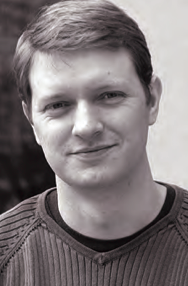 HSCI recently announced the establishment of an HSCI Fellowship in affiliation with the Broad Institute, a collaboration between Harvard and Massachusetts Institute of Technology (MIT). The fellowship will provide three years of crucial support to an early career investigator affiliated with HSCI and the Broad Institute.
HSCI recently announced the establishment of an HSCI Fellowship in affiliation with the Broad Institute, a collaboration between Harvard and Massachusetts Institute of Technology (MIT). The fellowship will provide three years of crucial support to an early career investigator affiliated with HSCI and the Broad Institute.
The first recipient of the new fellowship is Tarjei S. Mikkelsen, PhD. Mikkelsen received his bachelor’s and master’s degrees from MIT and his doctoral degree in bioinformatics and integrative genomics from the Harvard-MIT Division of Health Sciences and Technology. Mikkelsen is a member of the Broad Institute’s Genome Biology Program and Epigenomics Initiative.
During his graduate studies, Mikkelsen was first author on numerous papers in leading scientific journals, such as Nature. Most recently, in October, he was co-first author (with Zhao Xu, PhD, of Beth Israel Deaconess Medical Center) of a paper in Cell that reported the discovery of two new factors that regulate the formation of fat, which is an important step toward better understanding metabolic disorders such as diabetes and obesity.
An expert in bioinformatics who also conducts laboratory research, Mikkelsen will divide his time between the Broad Institute and Harvard’s Department of Stem Cell and Regenerative Biology. Going forward, his research will focus on better understanding mammalian gene regulatory networks for the purpose of developing strategies for manipulating cellular states. His laboratory will pursue complementary lines of research in this area, using integrative genomic and epigenomic approaches. Mikkelsen’s lab will also collaborate with other HSCI investigators to provide specialized expertise in integrative genomics and computational analysis.
“It is very time consuming and often extremely difficult to obtain federal funding for the type of high-risk/high-yield research I’m engaged in,” said Mikkelsen. “This fellowship allows me to bypass this lengthy process and start tackling important problems in stem cell biology immediately.”
